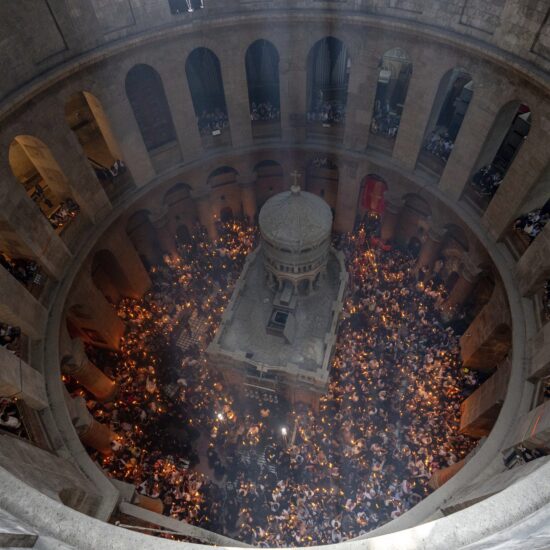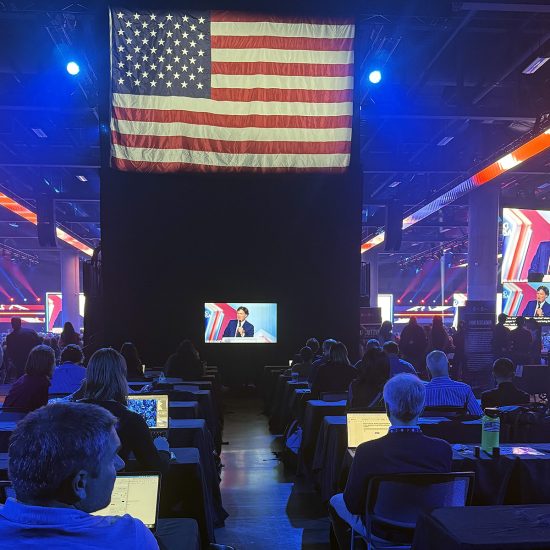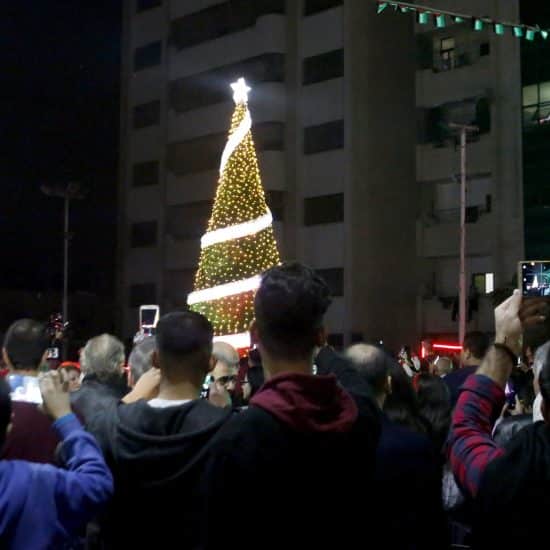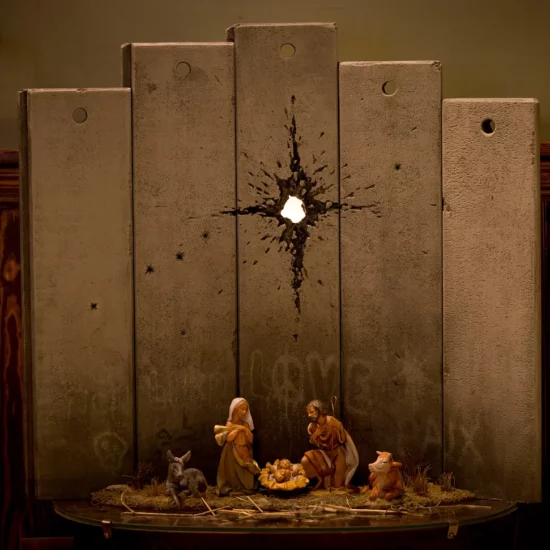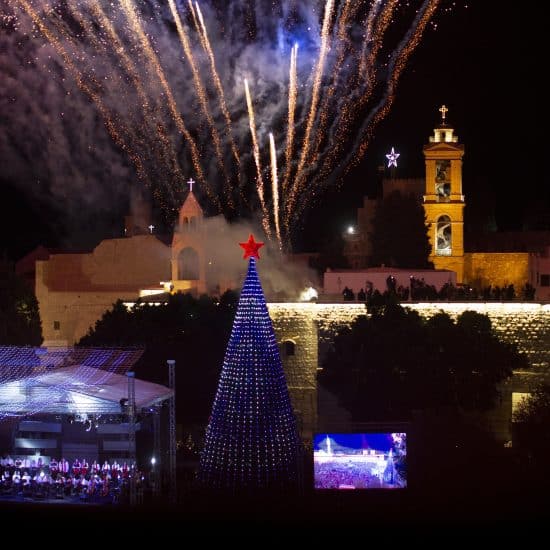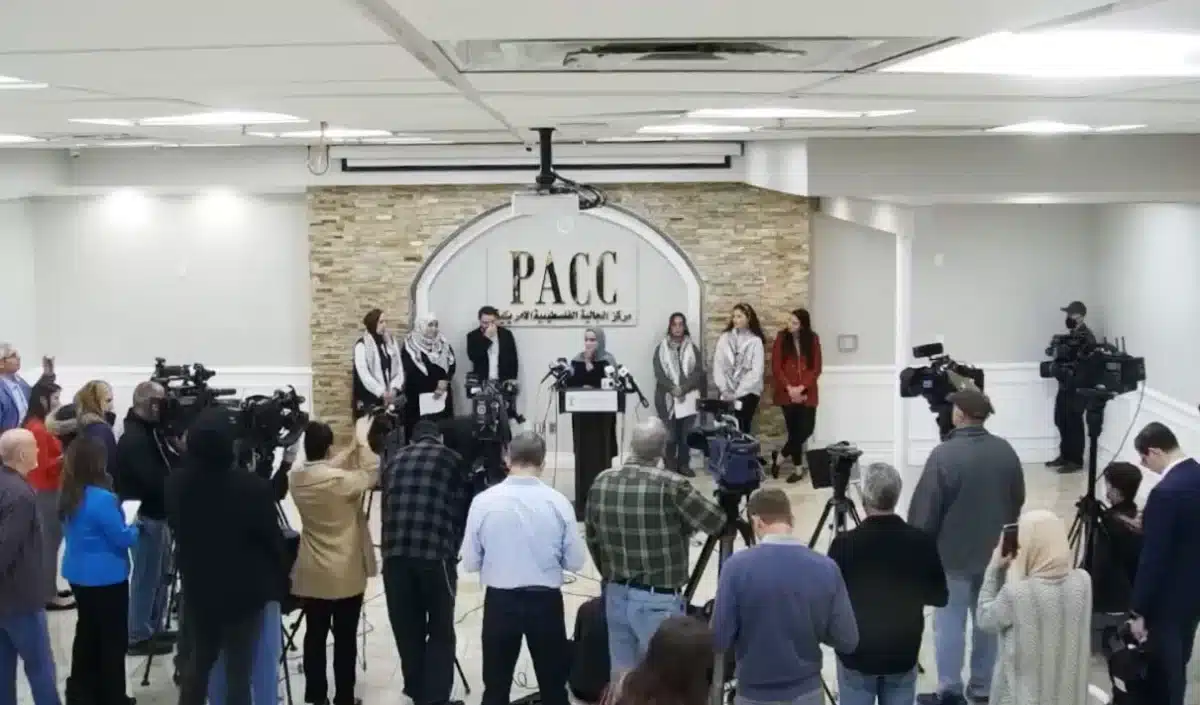
(RNS) — Thousands of miles from the crisis in Gaza, Muslims and Palestinians in the U.S. are reporting a wave of Islamophobic incidents that, for many, feels terrifyingly familiar.
“This is reminding me a bit of how it felt post-9/11,” Palestinian activist and policy analyst Laila El-Haddad told Religion News Service on Tuesday afternoon (Oct. 17).
In the days since Hamas attacked southern Israel on Oct. 7 and Israel unleashed retaliatory airstrikes in Gaza, thousands of civilians have been killed. For some Palestinian Americans, the days have been consumed by checking on loved ones in Gaza while also taking precautions for their own safety. Meanwhile, they have watched as some who voice support for the Palestinian civilians trapped in Gaza have been slandered or received threats of their own.
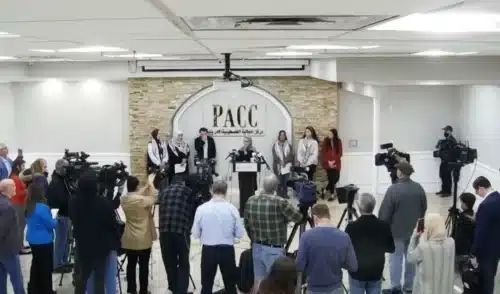
Selaedin Maksut was one of several individuals who recently spoke about rising anti-Palestinian and anti-Muslim bigotry during a news conference at the Palestinian American Community Center in Clifton, N.J. Video screen grab of PACC video
In Pennsylvania, a man was arrested after yelling slurs and wielding a gun at a pro-Palestinian protest. In Los Angeles, UCLA students attending a webinar on the crisis in Gaza were reportedly threatened and called terrorists by a small group of unidentified men. In Boston, the Palestinian Cultural Center for Peace was spray-painted with the word “Nazis.” And with the horrific killing of 6-year-old Wadea Al-Fayoume, a Palestinian American boy stabbed inside his home in a Chicago suburb, all threats are being taken seriously. The landlord of the boy’s mother has been charged with his murder.
It’s not just Palestinian Americans who are being impacted, according to Selaedin Maksut, executive director of the New Jersey chapter of the Council on American-Islamic Relations, who said threats have extended to all Muslims, or people who might be perceived as Muslim or Arab. For example, he said, a South Asian Muslim restaurant owner in South Jersey woke up Friday morning to the Quran being torn apart and scattered in front of her restaurant.
“Because we are so inundated, and the demand is so high, we’ve bypassed our usual intake process and are just trying to help people the best we can for the sake of time,” Maksut said about incidents in New Jersey, where Muslims make up about 3% of the population.
Corey Saylor, the director for research and advocacy at CAIR, confirmed that “without a doubt,” CAIR is seeing a surge of anti-Palestinian and anti-Muslim incidents across the U.S. “I think that’s part of what’s particularly depressing about this moment,” he said. “Recognizing that it is so easy for the Islamophobia switch to go back on.”
El-Haddad blamed one-sided and sloppy media coverage for rendering such a broad and unspecified group of people the targets of anti-Palestinian sentiment in the U.S.
“Disinformation and inaccurate media coverage is deadly for Palestinians, and in the context of America, for Muslim Americans,” said El-Haddad. “So much of it is ingrained in orientalism. … Palestinian becomes Arab becomes Muslim becomes Other.”
From his vantage point in Bethlehem in the West Bank, the Rev. Mitri Raheb said he has watched the coverage of the conflict coming from Western media with increasing alarm.
“You saw yesterday in Chicago how a man stormed a house of a Palestinian Muslim and killed a small child. Because the rhetoric in the media was demonizing Palestinians, so everyone was thinking by doing this, by killing Palestinians, they are doing God’s service,” said Raheb, the founder and president of Dar al-Kalima University in Bethlehem.
“It’s kind of a racist approach. You will not find any journalist in the U.S. asking the Jewish Israeli at the beginning of the interview to start by condemning settler colonialism or genocide against the Palestinians. Or to denounce apartheid. They don’t do it. Only they ask these questions to the Palestinians about condemning Hamas,” said Raheb, a former pastor of the Christmas Lutheran Church in Bethlehem and former president of the Synod of the Evangelical Lutheran Church in Jordan and the Holy Land. Raheb said he will no longer answer these questions when asked by Western media.
“We are asking for balance. So if you ask Palestinians to condemn, ask Israelis to condemn. If you talk about Jewish civilians, talk about Palestinian civilians. If you give face to a Jewish victim, give a face to a Palestinian victim. I mean, that is the least that we can do,” he said.
Some Jewish American groups have vocally shown support for Palestinians, even as antisemitism is also on the rise. Jewish activist groups If Not Now and Jewish Voice for Peace have been “on the ground, shoulder to shoulder” with protesters clamoring for peace in Gaza, according to Maksut, and on Tuesday, over 100 Jewish groups signed a statement condemning “Islamophobia, anti-Arab hate, antisemitism, and all forms of bigotry.”
“It’s incumbent on us to recognize that at a moment when any community is being targeted, even when our own community is being targeted, we have an obligation to speak out just as we hope people speak out for us,” said Amy Spitalnick, CEO of the Jewish Council for Public Affairs, who spearheaded the statement.
El-Haddad said it’s been extremely painful to see responses from officials at all levels ignore the plight of Palestinians. Raheb agreed, condemning politicians for furthering harmful one-sided narratives. In recent days, Raheb and El-Haddad have both been inundated by requests to speak to media, colleges, churches, and mosques on the conflict and the reality of life for Palestinians in the West Bank and Gaza. In their talks, the long-standing siege on Gaza and occupation of Palestinian territories is front and center.
“We’re so shielded from the everyday realities of what Palestinians endure that even among our own Muslim community here in America, there’s a lot of ignorance,” said El-Haddad, who now lives in Maryland. “So I’m finding myself having to simultaneously justify to the media why we are human beings and why we don’t deserve to be killed, while at the same time educating my own community about the situation in between checking in to make sure my family is still alive.”
The author of “Gaza Mom: Palestine, Politics, Parenting, and Everything In Between” and co-author of “The Gaza Kitchen: A Palestinian Culinary Journey,” El-Haddad was featured on the TV series “Parts Unknown” as a guide for Anthony Bourdain in the Gaza Strip and has long worked to humanize life in Gaza.
She has a large extended family living throughout the Gaza Strip and told RNS they are without power and have no working water pumps, so have resorted to bringing in well water and charging phones on small generators.
“They’re just trying to keep it together and cling to any semblance of routine and normality that they can,” she said about her family in Gaza. “They tried to celebrate their daughter’s ninth birthday. They’re trying to put on a brave face. They’re very resilient. Everyone is very strong of faith. We always ask, how do they cope? Faith is a big part of it.”


